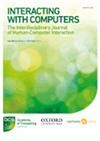Unraveling the Role of Social Media on Adolescents’ Daily Goals and Affect: The Interplay Between Basic Psychological Needs and Screen Time
IF 1.3
4区 计算机科学
Q3 COMPUTER SCIENCE, CYBERNETICS
引用次数: 0
Abstract
Despite the common belief that spending excessive time on social media apps harms adolescents' daily functioning, the impact of screen time is likely to differ depending on how well the use of social media aligns with adolescents' psychological needs for autonomy, competence, and relatedness. Grounded in self-determination theory, the aim of this study was to examine how both screen time and basic psychological needs on social media relate to adolescents’ daily goal striving and affective states. To this end, a 7-day diary study was conducted, and screen time (i.e. duration and frequency) was monitored objectively through an application on adolescents’ smartphones. In two daily surveys, participants reported on their basic psychological needs (i.e. satisfaction and frustration of the needs for autonomy, competence and relatedness) when spending time on social media, their experienced goal interference (i.e. guilt, goal conflict and rumination) and their affective states (i.e. positive and negative affect). Examining the data of 107 adolescents (M age = 15.28 years, SD = 1.66, range = 12–19; 53.3% female), multilevel path analyses revealed that, at the daily level, frustration of the basic psychological needs on social media was associated with temporary increases in guilt, goal conflict and negative affect. On the contrary, when adolescents felt satisfied with their needs during their time on social media, they reported better affective states. The duration of screen time also yielded an interfering effect (i.e. main effect), but this effect was attenuated when adolescents experienced high need satisfaction during their time on social media (i.e. interaction effect). Some lingering effects were found, with need satisfaction on SMU in the afternoon predicting lower guilt and goal conflict and need frustration on SMU relating to elevated rumination in the evening. These findings highlight the complex interplay between basic psychological needs on SMU and screen time for adolescents’ daily goal striving and affective well-being.解读社交媒体对青少年日常目标和情感的影响:基本心理需求与屏幕时间之间的相互作用
尽管人们普遍认为在社交媒体应用程序上花费过多时间会损害青少年的日常功能,但屏幕时间的影响很可能因社交媒体的使用与青少年对自主性、能力和相关性的心理需求的一致性而有所不同。本研究以自我决定理论为基础,旨在研究社交媒体上的屏幕时间和基本心理需求与青少年的日常目标努力和情感状态之间的关系。为此,我们进行了一项为期 7 天的日记研究,并通过青少年智能手机上的一个应用程序对屏幕时间(即持续时间和频率)进行了客观监测。在每天进行的两次调查中,参与者报告了他们在社交媒体上花费时间时的基本心理需求(即自主性、能力和相关性需求的满足和挫折)、他们所经历的目标干扰(即内疚、目标冲突和反刍)以及他们的情绪状态(即积极和消极情绪)。对 107 名青少年(中位年龄 = 15.28 岁,标差 = 1.66,年龄范围 = 12-19;53.3% 为女性)的数据进行多层次路径分析后发现,在日常层面上,社交媒体上基本心理需求的受挫与内疚感、目标冲突和消极情绪的暂时增加有关。相反,当青少年在社交媒体上的需求得到满足时,他们的情绪状态会更好。屏幕时间的长短也会产生干扰效应(即主效应),但当青少年在使用社交媒体期间体验到高需求满足感时,这种效应就会减弱(即交互效应)。研究还发现了一些持续效应,下午社交媒体上的需求满足预示着较低的内疚和目标冲突,而社交媒体上的需求挫折则与晚上的反刍增加有关。这些研究结果凸显了SMU上的基本心理需求和屏幕时间对青少年日常目标努力和情感幸福之间复杂的相互作用。
本文章由计算机程序翻译,如有差异,请以英文原文为准。
求助全文
约1分钟内获得全文
求助全文
来源期刊

Interacting with Computers
工程技术-计算机:控制论
CiteScore
2.70
自引率
0.00%
发文量
12
审稿时长
>12 weeks
期刊介绍:
Interacting with Computers: The Interdisciplinary Journal of Human-Computer Interaction, is an official publication of BCS, The Chartered Institute for IT and the Interaction Specialist Group .
Interacting with Computers (IwC) was launched in 1987 by interaction to provide access to the results of research in the field of Human-Computer Interaction (HCI) - an increasingly crucial discipline within the Computer, Information, and Design Sciences. Now one of the most highly rated journals in the field, IwC has a strong and growing Impact Factor, and a high ranking and excellent indices (h-index, SNIP, SJR).
 求助内容:
求助内容: 应助结果提醒方式:
应助结果提醒方式:


